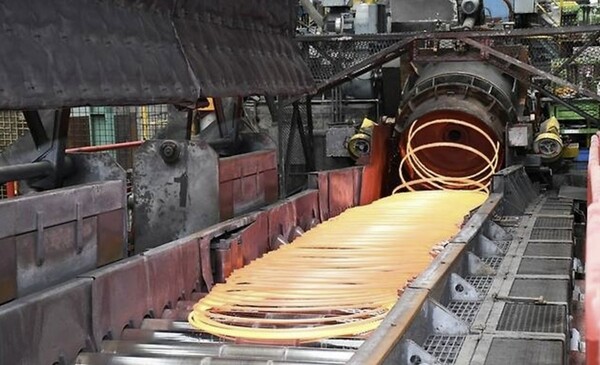South Korea's Response to Chinese Steel Dumping
The South Korean government is taking action to impose temporary anti-dumping duties on Chinese steel products, which have been flooding the market at low prices, severely impacting domestic steel manufacturers.

On December 2, the Ministry of Trade, Industry and Energy (MOTIE) announced that its Trade Commission has begun reviewing the imposition of provisional anti-dumping duties on low-priced Chinese heavy plates. Hyundai Steel had filed a complaint in July, prompting the ministry to launch an industry damage investigation in October.
Following a preliminary ruling in January next year, the ministry plans to request the implementation of temporary anti-dumping duties. A MOTIE official stated, "If provisional tariffs are imposed, they are expected to take effect in February." Temporary anti-dumping duties serve as an interim measure to protect domestic industries while the lengthy investigation process continues until a final ruling is reached.
The crisis in the domestic steel industry stems from China's overproduction and excessive supply of steel products, which have increasingly flowed into South Korea. According to the Korea Iron & Steel Association, South Korea imported 7.36 million tons of Chinese steel products between January and October this year, representing a 37.3 percent increase compared to 2022. Imports of thick steel plates, which account for a significant share, rose to 1.16 million tons over the same period, up 7.35 percent year-on-year and an 80.5 percent increase compared to two years ago.
Additionally, Chinese steel products are priced more than 10 percent lower than their South Korean counterparts, with thick plates being over 25 percent cheaper, exacerbating financial pressures on domestic steelmakers. The influx of low-cost Chinese products has led Hyundai Steel to shut down its Pohang No. 2 plant and forced POSCO Group to cease operations at the No. 1 wire rod plant at Pohang Steelworks for the first time in 45 years. Additionally, POSCO closed its No. 1 steel mill plant at Pohang Steelworks in July.
Concerns are mounting over the potential exacerbation of the steel oversupply crisis if the U.S.-China trade conflict intensifies under the Trump administration’s second term. Should the U.S. impose blanket tariffs on Chinese goods, the economic strain on China could further drive steel overproduction. In response to similar issues, the European Union began investigating Chinese tin coated steel products for anti-dumping measures in May, while Canada recently announced a 25 percent tariff on certain Chinese steel products. However, there are doubts whether anti-dumping duties alone will be sufficient to ensure the survival of South Korean steelmakers given the significantly low prices of Chinese imports.
The government’s decision to impose provisional anti-dumping tariffs stems from a recognition of the urgent need for extraordinary measures, as key players like Pohang Steelworks and Hyundai Steel face severe challenges, and the U.S.-China trade conflict intensifies. Without government intervention, there is growing fear that South Korea’s steel industry could collapse. A senior official at the MOTIE emphasized, "The sense of crisis within the ministry is greater than ever. We will take all possible measures to protect the domestic industry."









Comments